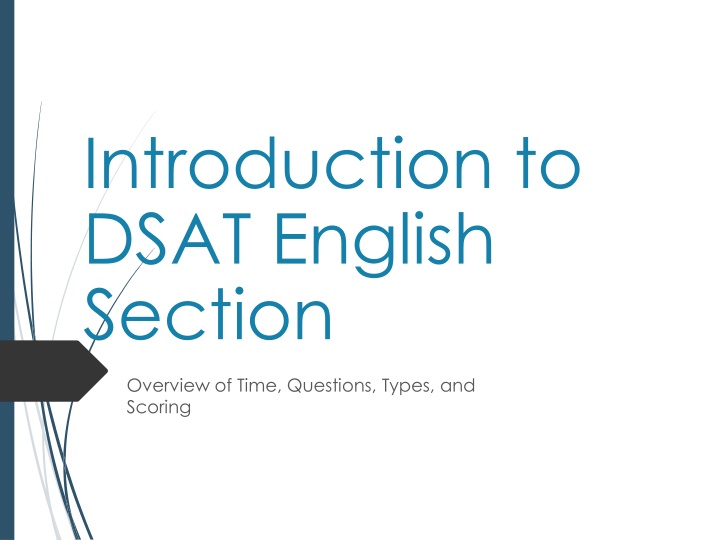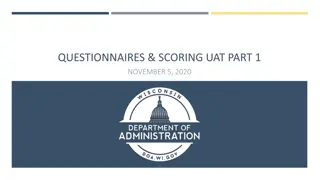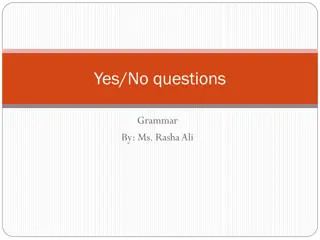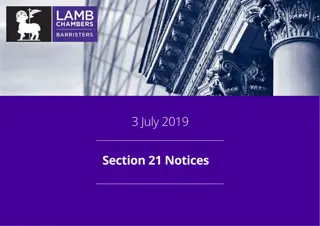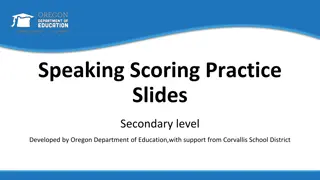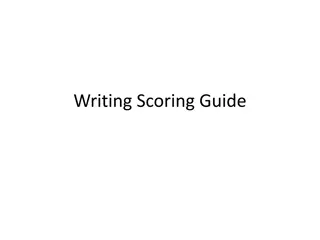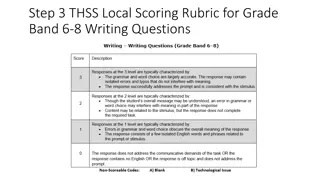Overview of DSAT English Section: Time, Questions, Types, Scoring
In this overview, explore the DSAT English section, covering time allocation, question types, and scoring details. Discover the different question types and sample questions across modules. Enhance your understanding of Information and Ideas, Craft and Structure, Expression of Ideas, and Standard English Conventions. Prepare effectively for the DSAT English section with insights into content and format.
Download Presentation

Please find below an Image/Link to download the presentation.
The content on the website is provided AS IS for your information and personal use only. It may not be sold, licensed, or shared on other websites without obtaining consent from the author.If you encounter any issues during the download, it is possible that the publisher has removed the file from their server.
You are allowed to download the files provided on this website for personal or commercial use, subject to the condition that they are used lawfully. All files are the property of their respective owners.
The content on the website is provided AS IS for your information and personal use only. It may not be sold, licensed, or shared on other websites without obtaining consent from the author.
E N D
Presentation Transcript
Introduction to DSAT English Section Overview of Time, Questions, Types, and Scoring
Time and Number of Questions Total Time: 64 minutes Total Questions: 54 questions Module 1: 32 minutes, 27 questions Module 2: 32 minutes, 27 questions
Question Types in DSAT English Information and Ideas: Tests comprehension, analysis, reasoning, and interpretation. Craft and Structure: Measures vocabulary in context, rhetorical analysis, and connections between texts. Expression of Ideas: Focuses on improving clarity and effectiveness of expression. Standard English Conventions: Tests grammar, sentence structure, usage, and punctuation.
Sample Question: Information and Ideas Example Question: "Which choice best states the main idea of the text?" A) The importance of urban conservation B) A lifestyle description of a specific species C) A critique of environmental policies D) A discussion on migration patterns
Sample Question: Craft and Structure Example Question: "Which choice best describes the author s purpose in the passage?" A) To explain a historical event B) To provide a counterargument C) To express personal thoughts D) To criticize a modern trend
Sample Question: Expression of Ideas Example Question: "Which choice most effectively combines the sentences to improve clarity and maintain the intended meaning? The scientist conducted numerous experiments. She published her findings in a well-known journal. A) Conducting numerous experiments, the scientist then published her findings in a well-known journal. B) After conducting experiments, her findings were published in a well-known journal. C) The scientist published her findings in a well-known journal after numerous experiments. D) The findings from numerous experiments were published by the scientist in a well-known journal.
Sample Question: Standard English Conventions Example Question: "Which of the following sentences is punctuated correctly?" A) The project, although delayed due to unforeseen circumstances was completed on time. B) The team who had been working tirelessly celebrated their success with a grand dinner. C) Her response was; however, lacking in detail, which caused confusion among the participants. D) The meeting went well but; the follow-up emails were not sent promptly.
Scoring System Score Range: 200-800 points. Raw Score: Based on the number of correct answers (no penalty for wrong answers). Final Score: Sum of the scaled scores from both the English and Math sections. Scaled Score: Raw score is converted to a scaled score based on difficulty.
Tips for Success Time Management: Allocate time for all questions. Understand the Question Types: Know what each type of question is asking. Practice Regularly: Familiarize yourself with the test format through practice tests. Eliminate Incorrect Options: Use elimination strategies to improve accuracy.
